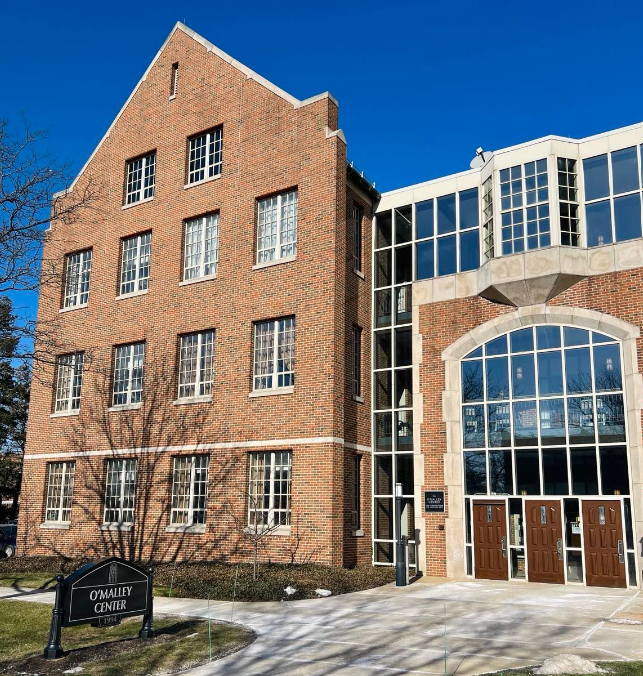The frail future of fine arts at JCU
Home to the College of Arts and Sciences, the O’Malley Center holds classes for the humanities and fine arts.
Feb 23, 2023
With a heavy focus on the Jesuit Catholic tradition of learning, leadership and service, John Carroll prides itself as a liberal arts institution, striving to develop intellect and character. Unsurprisingly, JCU offers many philosophy and theology courses to fulfill that mission. Yet, the university core requires only one credit hour of a CAPA, otherwise known as a Creative Arts or Performing Arts credit. So, why aren’t the fine arts as important at JCU than other areas of studies?
Currently, John Carroll is making efforts to grow their offerings which include introducing a nursing program in the fall 2023 semester and additional plans to renovate campus. With more attention on renovation and innovation, less attention is placed on the existing programs already at JCU.
Rodney Hessinger, Associate Dean of Humanities and Social Sciences, suggests that minimizing a fine arts focus is unintentional, saying that “the fate of all projects are reliant on the growth strategy.”
While Hessinger supports the humanities in every way possible, he admits that the “school has to make choices where there seems to be the most demand” and this means that “for the short-term, things will stay the same.” In other words, the fine arts will not be exhibiting the same growth that other programs are gaining due to the natural patterns and interests of the students.
For theater students like Maddie Jarosz 25’, this is devastating news. Jarosz, who has performed in musical theater since she was 11, says that she “had a goal to get a theater minor and be very active in the theater programs on campus.” She was saddened to hear that the theater program was no longer offered as a major or minor at JCU since “the performing arts are about storytelling” as Jarosz poetically describes.
Jarosz continues by elaborating that “as actors, we work hard to tell people a story that has a deep, moral lesson that differs from person to person depending on their interpretation. I think it is a beautiful way to connect with an audience by creating an escape in which they are impacted at an emotional level.”
On the bright side, Maddie found alternatives to satisfy her thespian roots. She states, “the only [organization] that gave me the satisfaction of performing in front of others was the Improv Club.”
Hessinger said the action to remove the theater program was caused by the retirement of the theater director and that it “wasn’t a deliberate decision to shut down theater.” When asked if the theater program would be reinstated, Hessinger replied that he doesn’t see theater regrouping “in the immediate future, but the doors are not closed.”
For drama advocates such as myself, it is comforting to know that theater is not out of the question here at JCU. The Little Theatre Society exists to offer students the opportunity to stay close to the world of fine arts. Hessinger encourages students to reach out to The Little Theatre Society and to vocalize to administration if they would like to see a greater selection of fine arts at JCU. He truly believes that “student energy” shapes the future of the fine arts.
To contact The Little Theatre Society, the best email to reach them at is littletheatresociety@gmail.com. Also, if you have any interest in petitioning for more fine arts here at JCU, please reach out to me at avandress25@jcu.edu.













